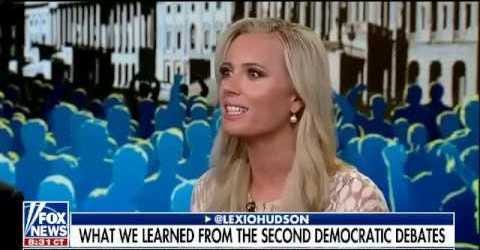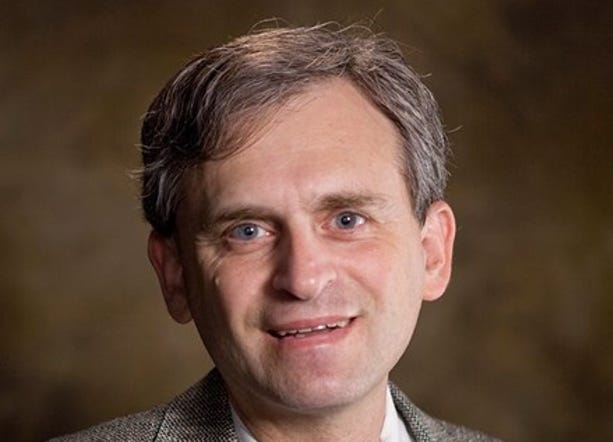History lessons
Studying the past helps us grasp the present and shape the future
Among the hundreds of signatories to the Freedom Conservatism Statement of Principles are brilliant economists, lawyers, theologians, social scientists, and policy experts. But we also count among our ranks some of the country’s most insightful and influential historians.
For FreeCons, the study of American history — from the founding era to more recent political and social developments — is an indispensable tool. The past shapes our views of the present and hopes for the future.
Alexis de Tocqueville once wrote that history was “a gallery of pictures in which there are few originals and many copies.” And the great Lord Acton argued history “is not a burden on the memory but an illumination of the soul.”
So even as FreeCons and their allies seek to shape the policy priorities of a new administration in Washington as well as state and local governments across the country, we continue to find and apply the lessons of history to today’s biggest problems.
Restore public trust
Justin Perry is an immunologist and cancer biologist at Memorial Sloan Kettering Cancer Center and a FreeCon signatory.
In a recent article for The Dispatch, Perry summarized the recent history of the National Institutes of Health and argued that President-election Donald Trump’s nominee Jay Bhattacharya would be “a solid choice for NIH director.”
Bhattacharya “has a tendency to go against the grain but is not, contrary to some characterizations, a fringe pick. He has advocated positions that challenge the dominant bureaucracy and declared his willingness to make changes that improve transparency and restore trust in public health policy.”
Perry listed several reforms Bhattacharya could implement to mend some of the public trust lost during the COVID pandemic. They include improving NIH transparency and congressional oversight, eliminating DEI initiatives, and expanding funding for innovative research.
“On top of Bhattacharya’s excellent academic credentials, his training in economics could be a benefit in helping the NIH stretch limited taxpayer dollars,” he wrote. “He also has the character and potential to make the necessary changes that would help renew trust in the NIH.”
Perry also cautioned Bhattacharya not to “overreach in a way that causes further disillusion in an already disillusioned biomedical science community.”
So, the pop
Samuel Gregg is the Friedrich Hayek Chair in Economics and Economic History at the American Institute for Economic Research and an affiliate scholar at the Acton Institute. He is the author of 16 books, most recently The Next American Economy: Nation, State, and Markets in an Uncertain World. He is also a FreeCon signatory.
Writing in Acton Institute’s Religion and Liberty Online, Gregg reviewed 2008: What Really Happened — Understanding the Great Financial Crisis by Todd Sheets. He praises Sheets’ work for outlining a detailed and historically accurate analysis of the “Great Recession.”
Sheets’ work challenges the prevailing notion that “untrammeled and unregulated financial markets” caused the 2008 financial crisis.
“At the time, I and others argued that a combination of mistaken monetary policy, government interference in American housing markets, and a firm belief on the part of large banks and Government-Sponsored Enterprises (GSEs) that they would get bailed out by the federal government if they ever faced colossal losses were the primary precipitating factors,” Gregg explained.
The book focuses on the housing crisis that had its origins in the late 1990s. Sheets “proceeds methodically through the housing bubble, the liftoff phase of the bubble, and its acceleration phase before turning to 2008 and the specific role played by investment banks and money market funds throughout that year,” Gregg wrote.
“In doing so, he provides a convincing refutation of the gradual deregulation narrative that still maintains considerable traction in academic and popular discourse.”
It takes a long time for analysts to gain an accurate understanding of the causes of major economic crises. “Whether it is the economic impact of President Andrew Jackson’s decision to close the Second Bank of America or the causes of the Great Depression, the time lag between the event and any definitive explanation of what happened can range from decades to even a century,” Gregg wrote.
Gregg closed his review by summarizing Sheets’ solution to head off future financial crises. “It involves 1) eliminating the role played by GSEs in national housing markets; 2) eliminating or drastically limiting the Fed’s ability to pump up asset bubbles via interest rates; and 3) requiring variable net asset value reporting for all money market mutual funds.”
Today’s policymakers can learn a great deal from the true causes of the Great Recession.
“‘Unregulated markets’ have been blamed over the past 17 years for the financial crisis that devastated the economy during the waning days of the Bush administration,” Gregg concluded. “But now is the time for some clearheaded and fair-minded analysis to ensure it never happens again.”
Civil sobriety
Alexandra Hudson is the founder of Civic Renaissance and author of The Soul of Civility: Timeless Principles to Heal Society and Ourselves.
A former Novak Journalism Fellow with such media credits as CBS, PBS, Fox News, The Wall Street Journal, USA Today, and Politico, Hudson was one of the organizers of the Freedom Conservative movement.
In a recent Washington Post column, she related the story of the combative presidential election of 1800 and how it severed ties between John Adams and Thomas Jefferson.
“They did not speak for more than a decade,” Hudson wrote. “It took the concerted efforts of Benjamin Rush — a noted abolitionist and co-signer of the Declaration of Independence — to encourage the ‘frenemies’ to consider a rapprochement. Rush worked on both Jefferson and Adams to soften their hearts toward each other.”
From 1812 to 1836, the two former presidents exchanged more than 150 letters.
“The two men reestablished trust and areas of common ground before discussing topics of greater weight, such as the fate of the American experiment they had helped found,” Hudson explained.
“Reasoned, spirited debate is central to a free and flourishing democracy. But Jefferson and Adams learned the hard way that politics is not worth ending relationships over.
“So in this holiday season — and beyond — let’s remember the secret to talking politics: Don’t.”
Free speech opportunity
Robert Maranto is the 21st Century Chair in Leadership at the Department of Education Reform at the University of Arkansas, as well as a FreeCon signatory.
Maranto previously taught at Villanova and has, with colleagues, produced 15 scholarly books, including Educating Believers: Religion and School Choice, President Obama and Education Reform, COVID-19 and Schools Policy, Stakeholders, and School Choice, and The Politically Correct University.
In a recent article for Washington Examiner, Maranto recounted the recent history of institutionalized attacks on free speech and encouraged a bipartisan breakthrough protecting Americans’ First Amendment rights.
He pointed to a nationally representative survey conducted three weeks before the election showing that “while most respondents expressed concerns about inflation, healthcare, crime, abortion, and immigration, 63% considered free speech a ‘very important’ election issue.”
There is an opportunity during the lame-duck session for Democrats to protect free speech on college campuses, he argued.
“In their last days running the Senate, Democrats have incentives to pass and rename the End Woke Higher Education Act assuring viewpoint neutrality in regulating campus speech to forestall likely Republican legislation and executive orders specifically targeting Democratic constituencies.
“To restore faith in our pluralistic democracy, it’s time for both parties to disavow using state power to crush the free expression of political opponents.”
In the mix
• In the Los Angeles Times, FreeCon signatory Jonah Goldberg challenged the common claim that Americans are “bitterly divided” by politics.
“Like rival noble families in medieval Europe, American elites have been vying for power and dominance on the arrogant assumption that their subjects share their concern for who rules rather than what the rulers can deliver,” wrote Goldberg, a senior fellow at the American Enterprise Institute.
“The genius of Trump’s most effective ad — ‘Kamala is for they/them, President Trump is for you’ — was that it was simultaneously culture war red meat and an argument that Kamala Harris was more concerned about elite concerns than everyday ones.
“If Trump can actually deliver competent government, he could make the Republican Party the majority party for a generation. For myriad reasons, that’s an if so big it’s visible from space. But the opportunity is there — and has been there all along.”
• In The Dispatch, FreeCon signatory Jeffery Tyler Syck discussed the vision of evil presented in the new film version of Wicked.
“Wickedness is neither senseless nor conscious — instead, it stems from selfish people rationalizing bad behavior that benefits them in some way,” wrote Syck, an assistant professor of politics at the University of Pikeville.
“Goodness, on the other hand, is the product of consciously disregarding oneself. We challenge evil not by embracing our identity (though accepting ourselves may be an important step along the way) but by tossing aside our own deepest needs and thinking of others.”




